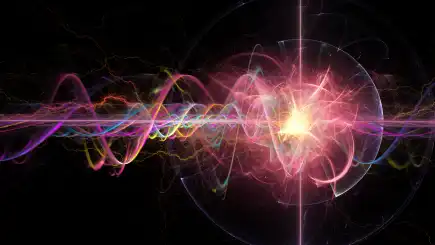Learn quantum detection with online courses and programs
What is quantum detection?
Quantum detection involves using principles of quantum mechanics to identify and measure properties of particles or systems at the quantum level. Unlike classical detectors, quantum detectors can exploit the delicate nature of quantum states to achieve higher sensitivity and precision. They can detect single photons, electrons, or other quantum particles, making them essential in various fields, including quantum physics and quantum computing. Quantum detection methods enable more accurate and efficient measurements, which have practical applications in emerging technologies and fundamental scientific research.Footnote 1

Browse online quantum detection courses
Quantum detection course curriculum
In online courses, learners can study a range of topics related to the principles, technologies, and applications of quantum detection. While the specific curriculum may vary depending on the course and the level of study, topics that learners may encounter include:
Introduction to quantum mechanics: Learn basic concepts of quantum mechanics, wave-particle duality, and quantum states.
Quantum measurement: Understand the principles of quantum measurement and how it differs from classical measurement.
Quantum detectors: Study different types of quantum detectors, including photodetectors, single-photon detectors, and superconducting detectors.
Quantum sensing techniques: Learn techniques and technologies used in quantum sensing, such as quantum interferometry and quantum-enhanced measurement.
Quantum optics: Learn about the study of light and its interaction with quantum systems, including photon sources and manipulation.
Quantum information: Explore quantum information theory, qubits, and quantum algorithms.
edX offers a variety of educational opportunities for learners interested in studying these topics, as well as a host of other disciplines. A boot camp can provide flexible hands-on learning for those who want to upskill quickly, while executive education courses are designed for busy professionals. You can also pursue a more comprehensive curriculum in a bachelor’s degree program or, for more advanced learners, a master’s degree program. Find the right learning path for you.
Explore quantum detection jobs
An individual with a background in quantum detection can pursue a variety of careers in research, technology development, and innovation. Career paths that someone with a background in quantum detection can explore include:
Quantum physicist: Researches quantum mechanics and quantum detection, contributing to knowledge about the quantum world.
Quantum engineer: Designs, develops, and maintains quantum detection systems and devices for applications in quantum computing, communication, and sensing.
Quantum research scientist: Works on cutting-edge research projects related to quantum technologies, including quantum sensors and detectors.
Quantum computing specialist: Focuses on the development and optimization of quantum algorithms and software for quantum computers.
Are you seeking to deepen your understanding of quantum detection, or to begin a new career in the quantum technology field? Build your knowledge with specialized courses offered through edX.
